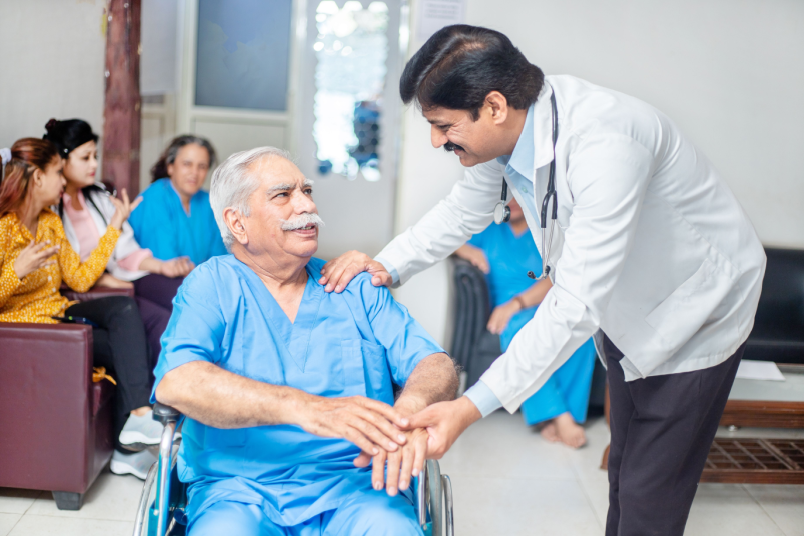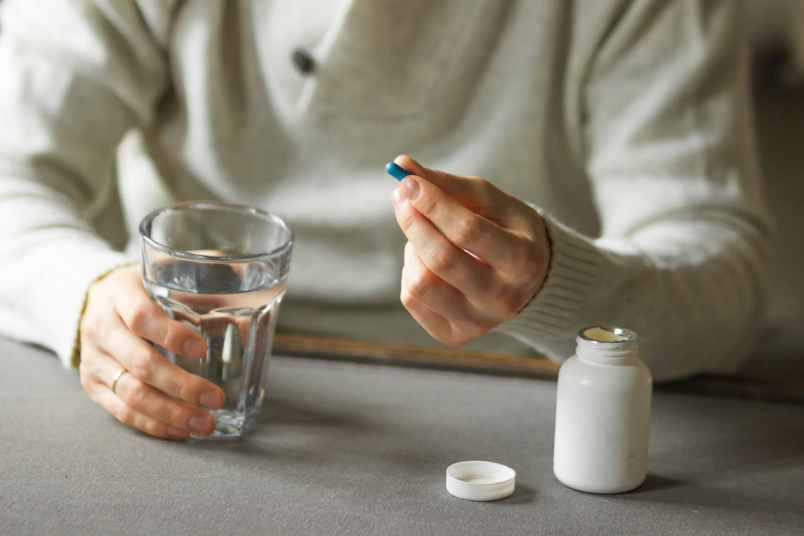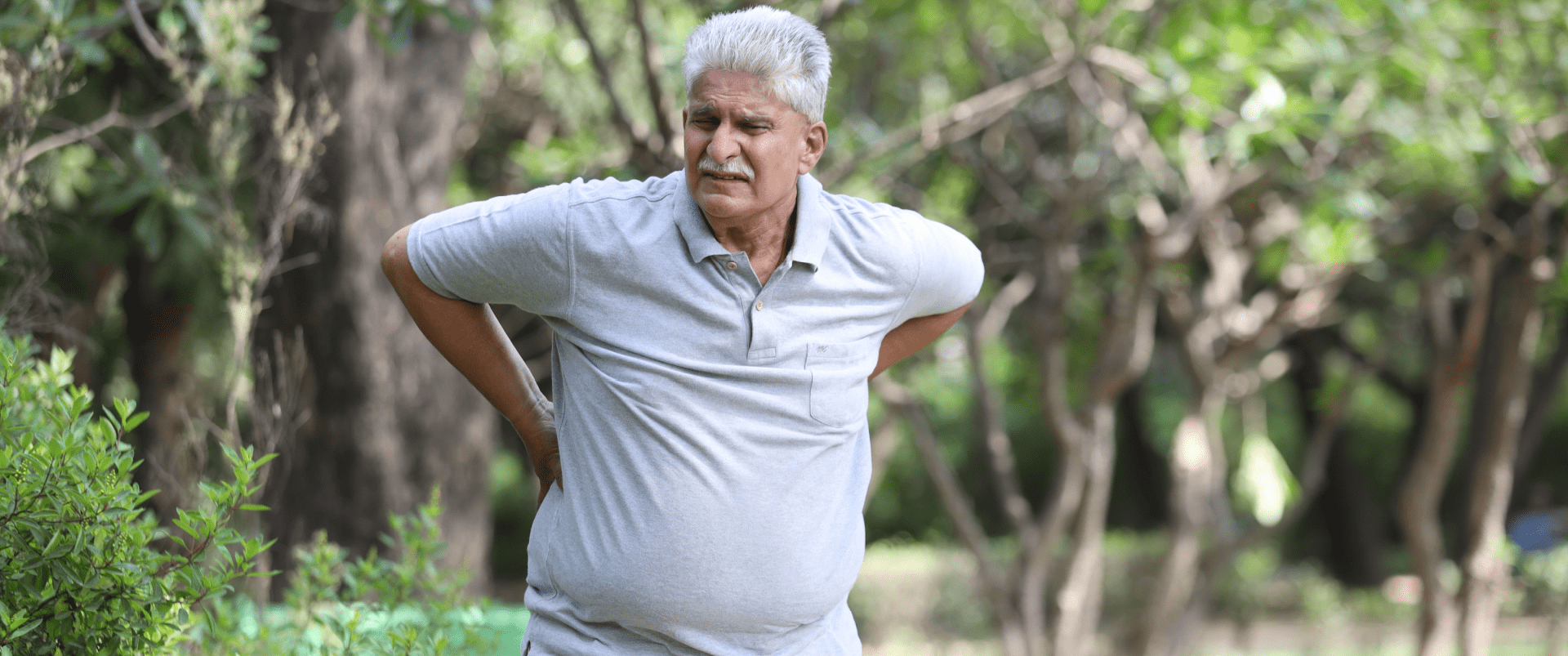Hip replacement surgery is a transformative procedure for individuals suffering from hip pain and limited mobility. Caring after hip replacement surgery is crucial for a successful recovery and better quality of life. Proper care involves pain management, physical therapy, wound care, and lifestyle adjustments. These measures are essential for ensuring a successful and long-lasting outcome, allowing patients to regain their mobility, reduce pain, and ultimately return to an active and fulfilling life. In this article, we will emphasize the care tips after hip replacement surgery to ensure a smooth and safe healing process.
Preparation Before Surgery

Medical Consultation: Schedule a thorough consultation with your orthopaedic surgeon to discuss the procedure, address any questions or concerns, and ensure if you're a suitable candidate for hip replacement.
Home Modifications: Make necessary adjustments in your home environment to enhance post-surgery accessibility. Remove tripping hazards, install handrails, and ensure commonly used items are within easy reach.
Support System: Arrange for a support system of friends or family members to assist you during the initial stages of recovery, including transportation to and from the hospital.
Medications: Review your current medications with your healthcare provider and adjust or discontinue any that may interfere with the surgery or recovery process.
Diet and Exercise: Focus on a balanced diet and maintain a healthy exercise routine, as advised by your surgeon, to optimize your physical condition before the surgery.
Pre-Surgery Education: Attend any pre-surgery education sessions or classes offered by the hospital to familiarize yourself with the procedure and post-surgery expectations.
Post-Surgery Care

Pain Management: You will experience pain and discomfort after the surgery. Follow your doctor's pain management plan, which may include prescribed medications. Do not wait until the pain becomes severe to take your medication.
Physical Therapy: It is an important step in the recovery process. Start with gentle exercises and stretches to improve mobility and strength. Your physical therapist will guide you through the appropriate exercises.
Walking Aids: Utilize walking aids such as crutches, a walker, or a cane as recommended by your healthcare provider to support mobility.
Wound Care: Keep the surgical area clean and dry and follow your doctor's instructions for wound care to avoid infection.
Blood Clot Prevention: Your doctor may prescribe blood-thinning medication or compression stockings to reduce the risk of blood clots. Regular ankle pump exercises can also help.
Home Safety: Continue to maintain a safe and clutter-free home environment. Avoid slippery floors and uneven surfaces.
Follow Dietary Guidelines: Eating a balanced diet rich in nutrients can aid in healing. Ensure you have proper nutrition to support your recovery.
Medication Management: Keep track of your medications and adhere to the prescribed schedule.
Avoid High-Risk Activities: Stay away from activities that might put excessive strain on your hip, such as lifting heavy objects or strenuous exercises.
Monitor for Infection: Keep an eye out for signs of infection around the incision site, such as increased redness, swelling, or discharge. Consult your surgeon if you notice any concerning changes at the site of incision.
Long-Term Care

Follow-Up Appointments: Make sure that you attend all planned follow-up visits with your surgeon to track your progress.
Physical Activity: Gradually reintroduce physical activity as advised by your healthcare team. Low-impact exercises such as swimming and stationary biking can help maintain your joint's flexibility and strength.
Lifestyle Modifications: Consider making suitable adjustments in your lifestyle, such as maintaining a healthy weight to reduce stress on your hip joint.
Pain Management: Even after the initial recovery period, you may experience occasional pain or discomfort. Discuss pain management options with your doctor, which might include physical therapy, over-the-counter pain relievers, or injections.
Hip Precautions: Be mindful of hip precautions, such as avoiding excessive hip flexion, internal rotation, and crossing your legs, which could strain the new joint.
Stay Hydrated: Proper hydration can aid in the healing process and support overall well-being.
Emotional Support: Recovery can be challenging both physically and emotionally. If needed, seek emotional support from friends, family, or a counsellor.
Patience: Understand that full recovery can take several months, and it's normal to have good and bad days. Be patient with yourself.
Report Issues: If you experience any unusual symptoms or have concerns about your recovery, don't hesitate to contact your healthcare provider.
To summarize in a nutshell, caring for yourself after hip replacement surgery requires a comprehensive approach, from thorough pre-surgery preparation to diligent post-surgery care and long-term attention to your well-being. By following these care tips and working closely with your medical team, you can optimize your chances of a successful recovery and return to a more active and pain-free life.
KM NU Hospitals in Ambur, India, is a premier destination for hip replacement and care. Renowned for its world-class orthopaedic expertise, state-of-the-art facilities, and compassionate staff, it offers cutting-edge surgical techniques and comprehensive post-operative support. Patients trust KM NU Hospitals for its outstanding outcomes and improved quality of life.
References:
1. Taking care of your new hip joint. Medline Plus.
https://medlineplus.gov/ency/patientinstructions/000171.htm.
2. Activities after total hip replacement. Ortho Info.
https://orthoinfo.aaos.org/en/recovery/activities-after-hip-replacement/.
Author: Dr. Tahir Ahmed
